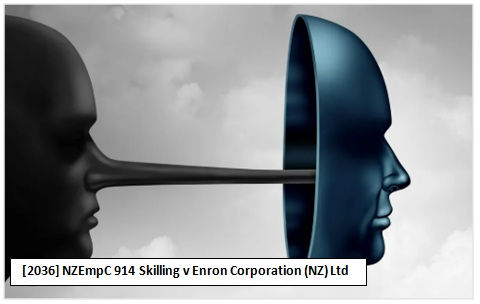From balance to babysitting: Employment Relations Bill gets contribution wrong - by Lawrence Anderson
- Nov 23, 2025
- 3 min read

On the issue of the reduction of remedies for contribution in a personal grievance action, the Bill will remove s 123(1)(a) reinstatement and (c) distress compensation remedies entirely, for any employee’s contribution, no matter how minor the contribution may be.
That means any contributory conduct of an employee, no matter how minor, would block the usual significant tranche of remedies that lawyers and advocates seek for their employee clients. Let’s take a look at what Hon. Brooke Van Velden, Minister of Workplace Relations, said:
"I'm strengthening consideration of and accountability for the employee's behaviour in the personal grievance process. The current remedy settings are imbalanced. Remedy reductions for contributory employee behaviour have decreased in recent years and instances of serious misconduct are still resulting in employees getting remedies. For example, in 2022, a restaurant worker was fired for stealing food from the restaurant, but the employer still had to pay the employee $21,000 in compensation for hurt and humiliation. In 2021, a truck driver was fired for falsifying information on their timesheet, but the employer had to pay the worker $10,500 in compensation for the humiliation and distress caused by the job loss and 13 weeks of lost wages."
We found both unnamed cases, relatively quickly with the help of LexisNexis Advance.
The $21,000 compensation was Maheno v Carrington Resort Jade LP [2022] NZERA 635. Ms Maheno admitted during the employment disciplinary process and to the Authority that she had consumed food to the sales amount of $187, which Ms Maheno repaid on exiting employment. An award for hurt and humiliation of $30,000 was quantifiable by the way the employer treated Ms Maheno during the process in suspending and then terminating Ms Maheno's employment.
Part of this included accusations that she was a drug user and publicising the disciplinary process and its outcome to other employees to make an example of Ms Maheno. The $30,000 was reduced down to $21,000 for recognition for contribution for the $187 consumption of food. Notwithstanding, Member Larmer commented that the treatment of Ms Maheno and the privacy related breaches required compensatory relief as they were regarded by the Authority as being significant.
With these facts of the case laid out here, is no remedy justified? And how would no remedy for that be "imbalanced" here considering the treatment of the employee as described by the Authority?
The $10,500 compensation award was Wirihana v AML Limited [2021] NZERA 14. In this case, the truck driver, Mr Wirihana, did not falsify information on his timesheet. The Authority Member Eleanor Robertson exonerated Mr Wirihana of this allegation. The contribution that Member Robinson found was that Mr Wirihana sought immediate assistance from his Union organiser, rather than engaging immediately informally with the employer about the employer's concern.
A 30% reduction seems harsh, although not as much as Lemon v IDEA Services where an employee's remedies were reduced by 100% for taking a bag of cheap sausages from the freezer that Mr Lemon understood that he was permitted to take. The Employment Court over the years has subsequently pulled the Authority in line as to how to assess contribution, particularly in Maddigan v Department of Conservation.
We reiterate here in relation to the $10,500:
"[78] I find that there is no evidence of fraudulent intent on Mr Wirihana's part"
.
As practitioners in this field, whether advocates or lawyers, you should be more concerned with this legislative change should it pass in the house and if it does, expect major difficulties obtaining settlements. In almost every case the employer will argue, whether meritorious or not, that serious misconduct has occurred and that there is contribution. We already have this debate in most cases.
This legislation is obviously employer friendly to the detriment of employees, and any time the pendulum swings too far one way or the other it risks more legislation to correct it.

Editor's note: Lawrence Anderson is an Auckland employment advocate currently studying towards a law degree. We banned AI including images from this site in 2024 but have made an exception on this occasion - Triz




Comments